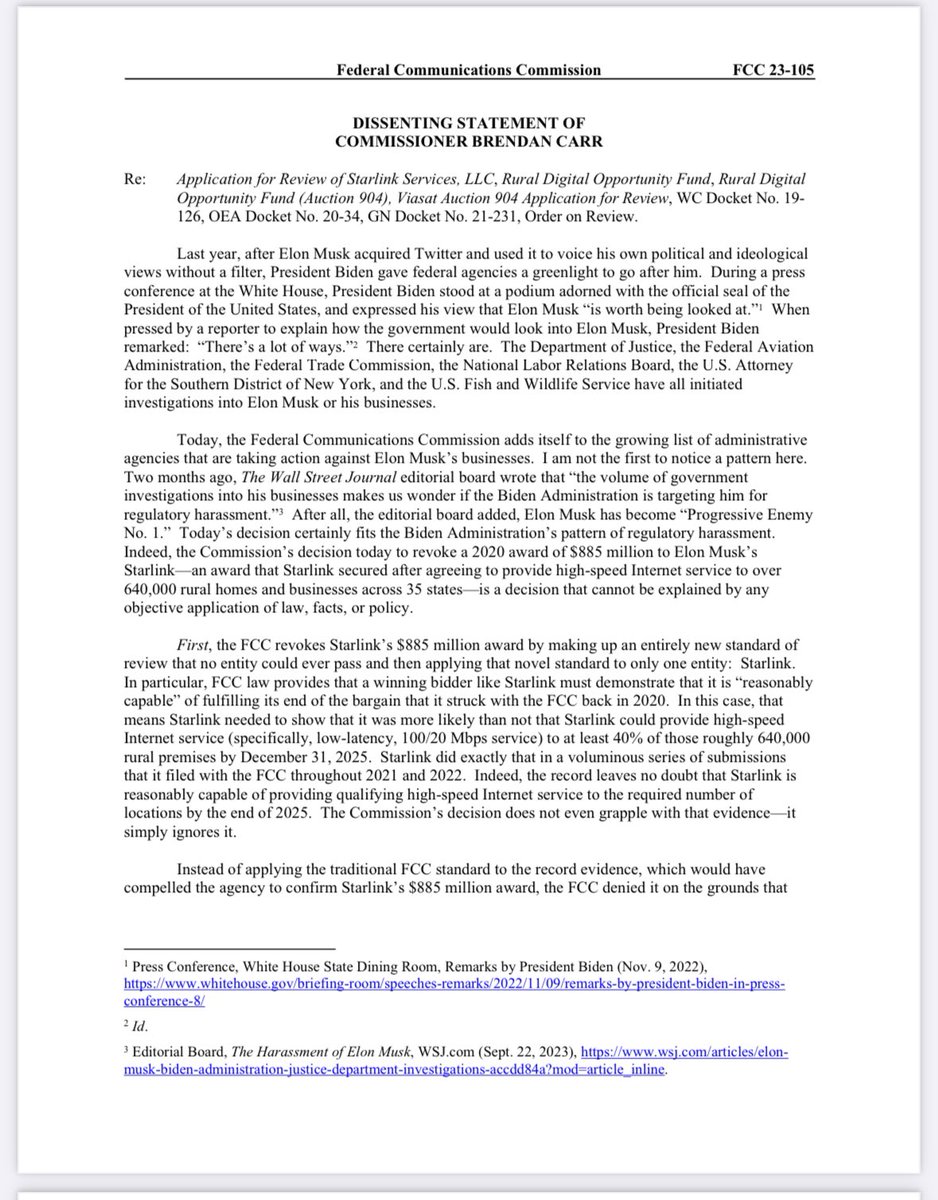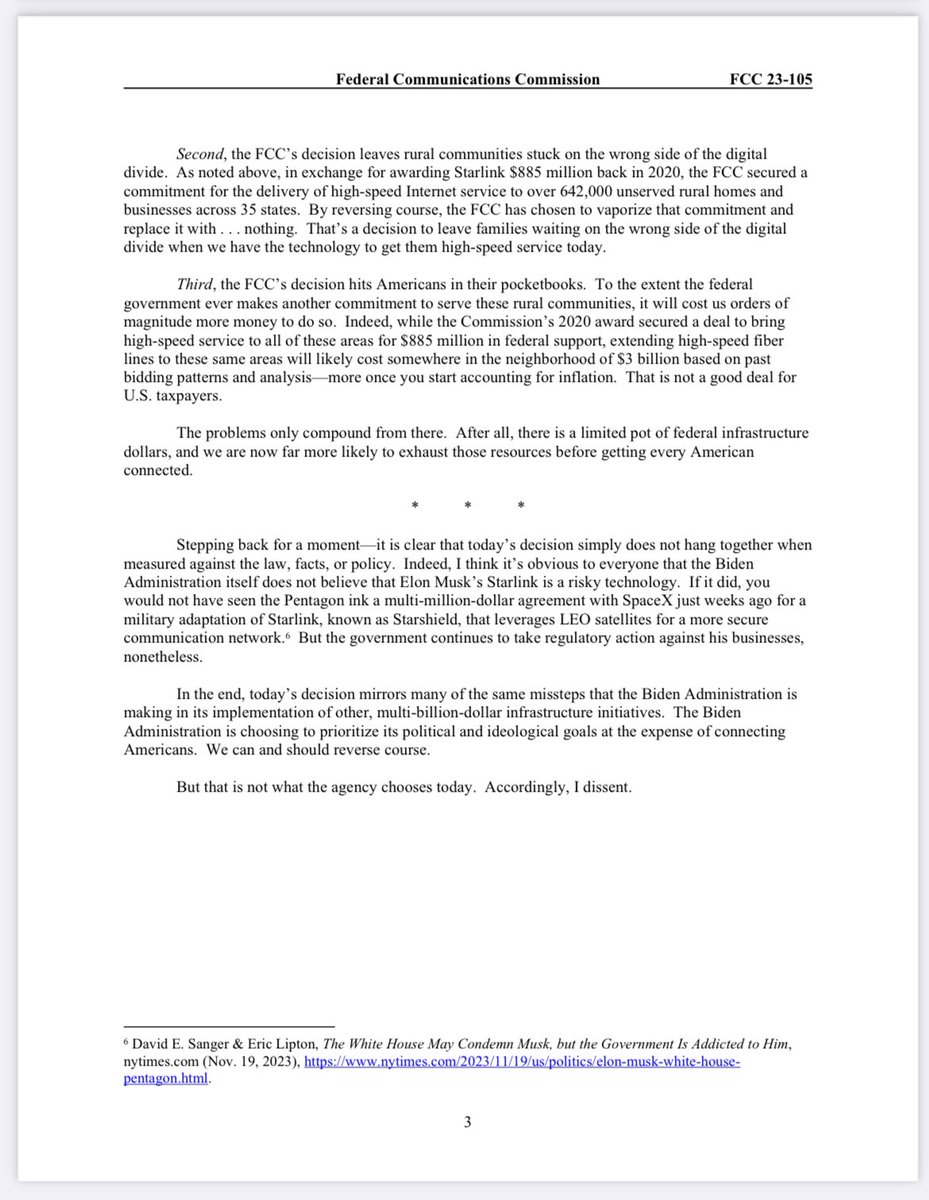Last year, after Elon Musk acquired Twitter, President Biden gave federal agencies the green light to go after him.
And they have.
Today, the FCC adds itself to the growing list of federal agencies engaging in the regulatory harassment of Elon Musk.
I dissent.



And they have.
Today, the FCC adds itself to the growing list of federal agencies engaging in the regulatory harassment of Elon Musk.
I dissent.



President Biden stood at a White House podium & stated that Elon Musk “is worth being looked at.”
When asked "How?", President Biden responded “There’s a lot of ways.”
There certainly are. The DOJ, FAA, FTC, NLRB, SDNY, & FWS have all taken action.
The FCC now joins them.
When asked "How?", President Biden responded “There’s a lot of ways.”
There certainly are. The DOJ, FAA, FTC, NLRB, SDNY, & FWS have all taken action.
The FCC now joins them.
The FCC's recent decision - like many of the other actions being taken by federal agencies against Musk - fits the Biden Administration’s pattern of regulatory harassment.
It is a decision that cannot be explained by an objective application of law, facts, or policy.
It is a decision that cannot be explained by an objective application of law, facts, or policy.
First, the FCC revokes Starlink’s $885 million award by making up an entirely new standard of review that no entity could ever pass and then applying that novel standard to only one entity: Starlink.
The decision does not even grapple with the evidence—it simply ignores it.
The decision does not even grapple with the evidence—it simply ignores it.
Second, rural America ends up paying the highest price for this decision.
Over 642,000 rural homes & businesses would have gained high-speed Internet access for the first time ever under the deal.
But the FCC just vaporized that commitment & replaced it with . . . nothing.
Over 642,000 rural homes & businesses would have gained high-speed Internet access for the first time ever under the deal.
But the FCC just vaporized that commitment & replaced it with . . . nothing.
• • •
Missing some Tweet in this thread? You can try to
force a refresh

















